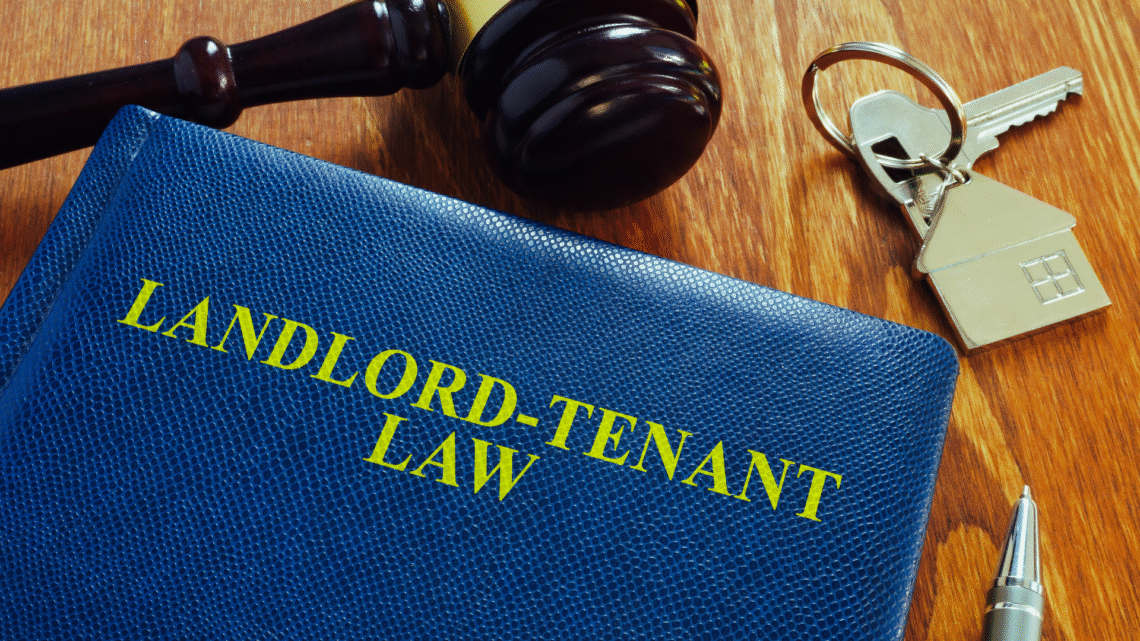
Legal Tips for Landlords: Essential Guidance for Successful Property Management
Landlords face a multitude of legal responsibilities that can significantly impact their rental businesses. Navigating these legalities is essential for maintaining a successful and compliant operation. Understanding the key legal tips for landlords can help prevent disputes and ensure a smooth rental experience for both parties.
From tenancy agreements to deposit protection, knowing the law protects landlords and enhances their credibility. Landlords often benefit from organised documentation and clear communication with tenants, which can further mitigate potential challenges. Staying informed about tenant rights, local regulations, and renewal processes is crucial for fostering positive landlord-tenant relationships.
By equipping themselves with essential legal knowledge, landlords can confidently manage their properties while reducing risks associated with non-compliance. This article will explore vital legal tips that every landlord should consider to safeguard their interests and promote successful tenancies.
Understanding Landlord Responsibilities
Landlords have a range of responsibilities that ensure legal compliance, tenant safety, and respect for tenant rights. Understanding these obligations is crucial for maintaining a positive landlord-tenant relationship.
Complying with Landlord-Tenant Laws
Landlords must adhere to local, state, and federal landlord-tenant laws. These laws regulate various aspects such as security deposits, lease agreements, and eviction procedures. Failing to comply can lead to legal disputes and potential penalties.
Landlords should:
- Ensure leases are clear and provide comprehensive terms.
- Keep accurate records of all transactions related to leases and tenant communications.
Staying informed about changes in regulations helps landlords avoid inadvertent violations. Consulting legal professionals when in doubt can provide essential guidance.
Providing Safe and Habitable Accommodation
The implied warranty of habitability requires landlords to provide housing that is safe and fit for human habitation. This means addressing dangerous conditions, such as broken heating systems or water leaks, promptly.
When issues like significant water leaks, fire damage, or mold growth occur, they can quickly render a property uninhabitable and lead to costly repairs if not addressed immediately. Professional restoration services are crucial in these emergency situations, offering rapid response to mitigate further damage and begin the recovery process. These experts are equipped to handle various types of property damage, ensuring the property is safely and efficiently restored to its pre-damage condition. They often work directly with insurance companies, simplifying the process for landlords and ensuring compliance with habitability standards. To learn more about comprehensive restoration solutions, landlords can consult local specialists.
To meet this standard, landlords should:
- Conduct regular property inspections to identify maintenance needs.
- Respond promptly to tenant reports of issues.
Failure to maintain a habitable environment not only jeopardises tenant safety but may also expose landlords to legal action.
Respecting Tenant Rights
Respecting tenant rights is vital for a harmonious rental experience. Tenants are entitled to quiet enjoyment of their homes, which means landlords must not disturb them unnecessarily.
Landlords should:
- Provide adequate notice before entering a tenant’s property, typically 24 hours.
- Recognise the tenant’s right to privacy and refrain from any form of harassment.
Understanding and respecting these rights fosters trust and ensures compliance with landlord-tenant laws. Being proactive in communication can help mitigate conflicts.
Drafting and Managing Tenancy Agreements
Creating an effective tenancy agreement is crucial for landlords. This document outlines the rights and responsibilities of both parties, helping to prevent disputes. Successful management of these agreements also involves understanding rental terms and security deposits.
Essential Elements of a Written Lease
A written lease should be comprehensive and clear. Essential elements include the names of all tenants and the landlord, the property’s address, and the duration of the tenancy. It must specify the type of tenancy, whether assured shorthold or periodic.
Other important details are the monthly rent amount, payment due dates, and acceptable payment methods. The agreement should include provisions for maintenance responsibilities, rules regarding pets or alterations, and notice periods for termination. Including a clause for dispute resolution, such as mediation, can also be beneficial.
Setting Monthly Rent and Rental Terms
When determining monthly rent, landlords must consider market rates and property condition. It is crucial that the rent amount is competitive yet fair. The lease should clearly state the rent, any included utilities, and consequences for late payments, such as fees or eviction procedures.
Rental terms should address rent increases, outlining how and when these will occur. It is advisable to specify the notice period for rent changes, typically 30 days in advance. This transparency helps maintain a good relationship between landlords and tenants.
Understanding Security Deposits
Security deposits serve as financial protection for landlords against potential damages or unpaid rent. Typically, the deposit amount is equivalent to one month’s rent, though this can vary. Landlords must provide tenants with details about how their deposit will be held and any interest accrued.
The tenancy agreement should specify the conditions under which deductions may be made from the security deposit. This includes property damage beyond normal wear and tear or unpaid rent. Following the termination of the tenancy, landlords are required to return the deposit within a specified timeframe, often 30 days, unless justified disagreements arise. Clear documentation at the start and end of the tenancy can help avoid disputes.
Screening and Managing Tenants Effectively
Effective tenant screening and management are crucial for minimising risks and ensuring a positive rental experience. Adhering to fair housing laws and utilising a systematic approach can assist landlords in selecting suitable tenants while addressing any issues that may arise during the tenancy.
Legal Tenant Screening Process
The tenant screening process should commence with a thorough rental application. This application must request essential information, including employment history, references, and previous rental experiences.
Landlords must also obtain consent to conduct background checks, which may include credit checks and criminal history evaluations. It’s imperative to comply with all applicable fair housing laws and avoid discriminatory practices. Failure to adhere can lead to serious legal consequences.
Utilising a standardised checklist can help ensure consistent evaluations for all applicants. This approach not only streamlines the process but also allows for better comparability among candidates.
Evaluating Rental Applications
When evaluating rental applications, landlords should carefully assess each component. Credit scores, employment stability, and landlord references all play a crucial role. For instance, a higher credit score may indicate reliable payment habits.
Landlords can create a scoring system to quantify strengths and weaknesses in applications. This systematic method assists in making objective decisions and can prevent biases from influencing outcomes.
It’s advisable for landlords to contact previous landlords directly to verify claims made in the application. Direct communication can uncover important details, such as whether the tenant paid rent on time or if there were disputes.
Addressing Problematic Tenants
Once tenants are in place, challenges may arise. It’s vital for landlords to establish clear communication channels and maintain professional relationships. This approach often prevents misunderstandings and enables prompt resolution of issues.
Should problems arise, such as late payments or property damage, landlords may initiate a formal warning process. This can be documented clearly to ensure there is a record of communication and any actions taken.
In cases where tenants fail to resolve issues, consulting a landlord-tenant attorney can provide guidance on legal rights. But, in some instances, the situation may escalate. There are cases where tenants can respond unfairly, going so far as to make false allegations of harassment and involving the police.
When faced with escalating tenant disputes, particularly those involving non-payment or lease violations, the legal process for eviction can be intricate and fraught with potential pitfalls. Landlords must navigate specific state and local regulations, ensuring every step is compliant to avoid costly delays or legal setbacks. An experienced eviction attorney Tucson can provide invaluable assistance, guiding property owners through the complexities of landlord-tenant law. They help ensure proper notices are served, court procedures are followed, and the landlord’s rights are protected throughout the entire process, from initial dispute to regaining possession of the property.
In such circumstances, it is important to remain calm and cooperative, even if the situation feels unjust. Having an attorney present here can provide the legal support needed. And, if any wrongful arrest or mistreatment occurs due to the police acting without verifying facts or reviewing documents, legal Actions Against The Police can be considered.
While immediate confrontation may not be necessary, once legal counsel is in place, steps can be taken to address any misconduct and ensure that justice is pursued appropriately.
Maintaining Properties and Ensuring Compliance
Landlords must prioritise the upkeep of their properties while adhering to legal obligations. This involves meeting safety standards, collaborating with professionals, and securing proper insurance coverage.
Meeting Safety and Certification Obligations
Landlords are required to ensure properties meet certain safety standards. This includes obtaining necessary certifications such as the Gas Safety Certificate and Energy Performance Certificate. These documents confirm that installations are safe and meet energy efficiency regulations.
Regular inspections and maintenance of electrical systems, heating, and plumbing are essential. Additionally, ensuring the proper functioning of other essential systems, such as elevators, is also important to avoid safety hazards and tenant complaints. In order to stay compliant, landlords can even outsource the upkeep and urgent repair of these systems to specialists such as Lift Repair Service- Murray Lift Group for timely and professional support. Failure to comply can lead to fines or legal actions. Landlords must keep records of all inspections and repairs to provide proof of compliance if necessary.
Working with Property Managers and Estate Agents
Engaging with experienced property managers or estate agents can streamline the management of rental properties. They can help landlords navigate local laws and regulations, ensuring compliance with tenancy agreements and housing standards.
Property managers can handle day-to-day operations, including tenant communication, maintenance requests, and rent collection. This delegation allows landlords to focus on their investment while ensuring that properties are managed professionally.
Protecting Investment Through Insurance
Landlords must consider landlord insurance to protect their investment from potential risks. This type of insurance typically covers property damage, loss of rental income, and liabilities arising from tenant injuries.
Choosing the right policy involves assessing various factors like the property’s value, location, and tenant type. A comprehensive insurance plan safeguards against unexpected events, ensuring financial stability even during challenging circumstances.
Investing in insurance should be part of a broader risk management strategy as it provides peace of mind and safeguards against significant losses.





